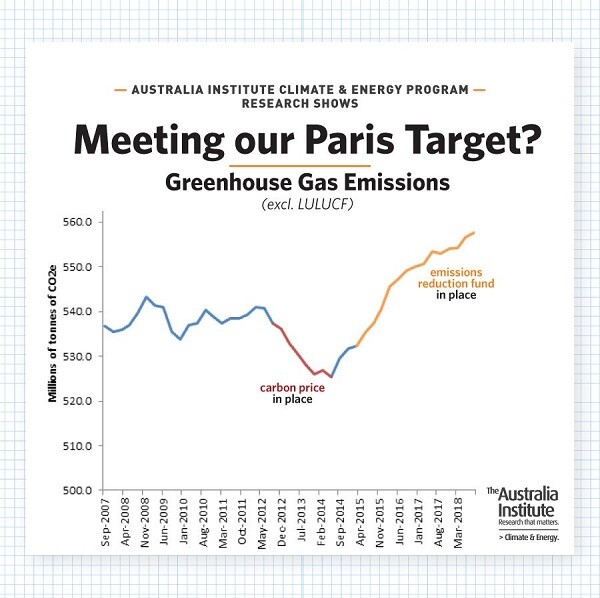“It is unbelievably misleading,” said signatory and Climate Councillor Greg Bourne on ABC Radio on Monday morning. “Anyone who goes into the data sets, and they’re really quite easy to look at, with some very nice graphs, show emissions rising ever since, basically, the Abbott government came in.”
Proud to be a signatory to this statement from @climatecouncil. Between us, we have devoted 600 years to this issue.
Last week’s announcements are not enough to get us to meet our lousy Paris Target. That target, by the way, isn’t even nearly enough to ensure a safe climate. pic.twitter.com/rVT0TmLA8Y
— Tim Baxter (@timinmitcham) March 3, 2019
The joint statement also notes that Australia’s 2030 target is economy wide, meaning that total greenhouse gas pollution must be reduced across all sectors: electricity, stationary energy, transport, fugitive emissions, industry, agriculture, waste and land use.
“The electricity sector has been going down… but the overall energy sector, if you take energy as a package, energy emissions for Australia have been going up continuously,” said Bourne, who is also the former CEO of the Australian Renewable Energy Agency.
“Transport emissions have been going up continuously, and continue, just continue to go up. …Stationary energy and industrial processes – still going up; fugitive emissions – still going up.”
“It’s almost as if, if the politicians can get us to concentrate on the electricity sector, which has shown some downward slope, then we’ll forget all about the rest.”
“We won’t be meeting out #ParisTargets by reducing emissions, we’ll be relying on dodgy credits that we got through accounting tricks from 10 years ago,” says @RichieMerzian Director of @TheAusInstitute Climate & Energy Program, on @SkyNewsAust #auspol pic.twitter.com/IbzTa0pTVG
— Australia Institute (@TheAusInstitute) March 4, 2019
